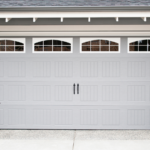A Good Rule Is To Spend No More Than 25–30% Of Your Income On Housing.
When it comes to managing our finances, one of the most important decisions we make is how much to allocate towards housing. A good rule that financial experts often recommend is spending no more than 25-30% of our income on housing expenses. This guideline helps ensure that we maintain a healthy balance between our housing costs and other essential needs.
Why is this rule so widely advocated? Well, committing too large a portion of our income to housing can have serious repercussions on our overall financial well-being. It can leave us with little room for saving, investing, or dealing with unexpected expenses. By limiting our housing costs to within this range, we create a buffer in our budget that allows for flexibility and financial security.
Sticking to this guideline not only provides us with peace of mind but also promotes long-term stability. It allows us to prioritise other important aspects of life, such as saving for retirement, paying off debt, or pursuing personal goals and dreams. Ultimately, by adhering to the 25-30% rule for housing expenses, we set ourselves up for a more balanced and sustainable financial future.

Factors to Consider When Budgeting for Housing
When it comes to budgeting for housing, there are several factors that you should consider. Keeping in mind the good rule of spending no more than 25–30% of your income on housing, here are some key points to help you make informed decisions:
- Income: Start by evaluating your income. Calculate your monthly take-home pay after taxes and deductions. This will give you a clear understanding of how much you can afford to allocate towards housing expenses.
- Fixed Expenses: Take stock of your existing fixed expenses such as loan payments, insurance premiums, and other obligations that need to be accounted for in your budget. Subtract these fixed costs from your income before determining the percentage you can allocate towards housing.
- Location: Consider the location carefully. The cost of housing can vary significantly depending on where you choose to live. Urban areas or popular neighbourhoods often command higher rental or mortgage prices compared to suburban or rural areas.
- Rent vs Mortgage: Decide whether renting or buying a home is the best option for you. Renting provides flexibility but may limit long-term equity growth, while owning a home offers stability but comes with additional responsibilities like maintenance and property taxes.
- Additional Costs: Don’t forget about additional costs associated with housing, such as utilities (electricity, water, gas), internet and cable bills, homeowner’s association fees (if applicable), and potential repairs or renovations.
- Future Financial Goals: Consider how your housing expenses align with your future financial goals. Are you saving for retirement? Planning to start a family? Wanting to travel extensively? Ensure that allocating a certain percentage of your income towards housing doesn’t hinder progress towards these goals.
Remember – adhering to the guideline of spending no more than 25–30% of your income on housing helps maintain financial stability and allows room for other essential expenses and savings. By carefully considering these factors, you can make a well-informed decision about how much you should allocate towards housing while still maintaining a healthy budget.






